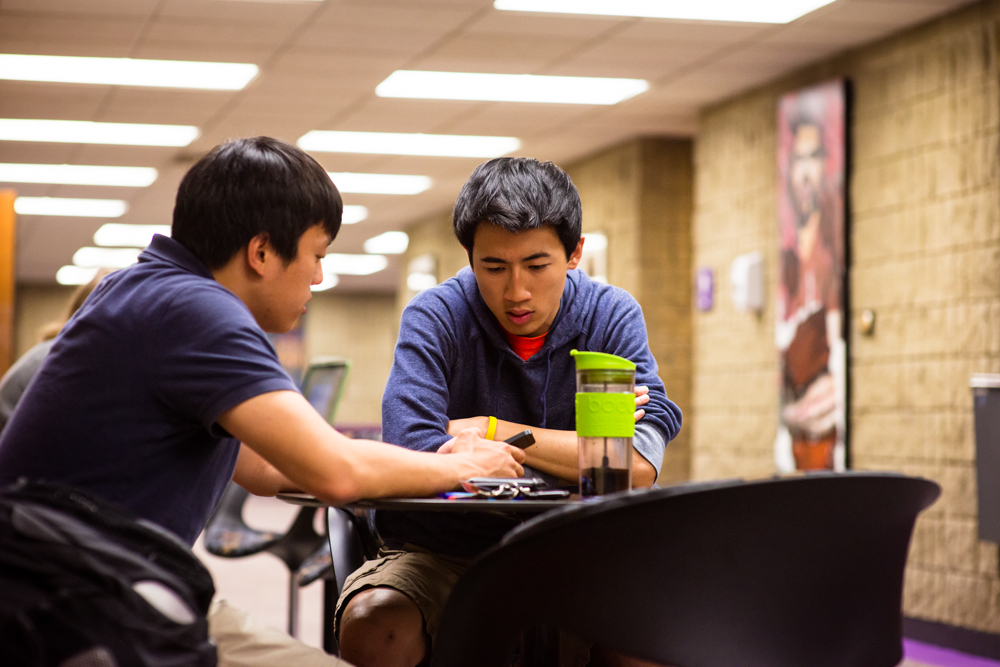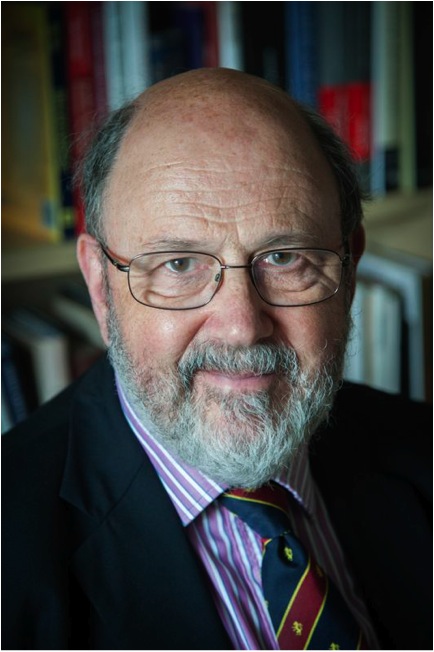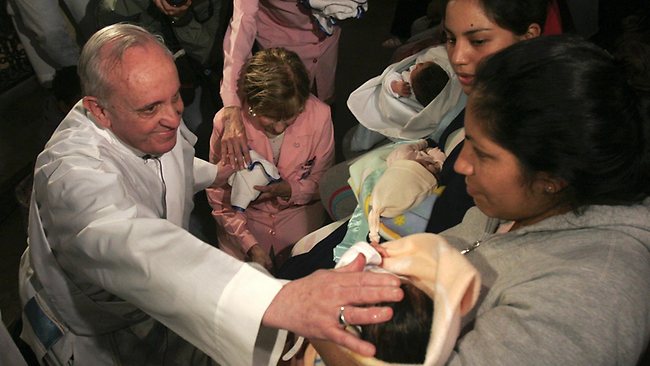
A few weeks ago I wrote about purpose; I presented a handful of perspectives on the purpose of our human existence and asked the question, Why should I go to grad school, anyway? Today I want to zoom in on one particular thread that, as you may have noticed, traced prominently through two of the given perspectives. That thread is the glory of God. Now, before I lose you completely with those worn out old words, let me shake them off and give them back their . . . glory.
Irenaeus, a father of the early church, famously said:
The glory of God is the human person fully alive.
That is, when a human being experiences and enjoys the richness of God and his creation, that human being puts God on display—he or she shows to the cosmos the true nature of its creator. Jesus was and is the human being who most clearly displays the creator’s nature. He is the very renown and wisdom and honor of God in human flesh and, when he went to the cross, he displayed God’s mysterious core: justice and self-giving love.
But what about us? How can this possibly relate to work in a science lab or at an editing desk, or, in my case, in a religious studies seminar? Here’s the thing: God has created all of us individually, to act as his representatives, his ambassadors (2 Cor. 5:20) in the world in very real, specific ways. Jesus’s specific vocation was, in complete obedience to the Father, to reveal the self-giving love of God through his life and work and, ultimately, his death on a roman cross, taking onto himself the sins of the world, rising to prove the weakness of death and evil, and sending his Spirit. (I’m sure I’ve left something out here, but you get the idea.)

With Jesus we share the call to selfless obedience to the Father, we share the call to the revelation of the self-sacrificial love of God. But physically dying on a roman cross for the sins of the world is likely not part of your vocation. N. T. Wright said it well in the quote I shared in my last post:
…Every follower of Jesus will have his or her own unique and interestingly different vocation within this complex overall project.
Since Jesus is the King of kings and Lord of lords, he wants to bring everything into his kingdom—the arts, the sciences and, yes, even the humanities. And in those fields we are not mere instruments that God wields to bring himself power and fame, but he’s taken us up as co-workers, bringing his kingdom of self-giving love into every discipline, every craft, every city, every university. Our vocation is the specific realm—workplace, department, milieu—into which we bring God’s kingdom.
It is not the case, however, that we can remain as we wish, as we are, making ourselves the center of our work. God must be the center. Without the help of our creator we are lost. If we refuse the salvation available—every day!—through Jesus, we remain in a broken state. But God, being our creator, our greatest ally and loving Father, wants to see us thriving, leading flourishing lives full of joy and peace and hope and love. He wants us to work with him, in his love and power, bringing the reconciling, cruciform love (the kind of love modeled on the cross) wherever we work, live, play and study.
Consider my friend Ray. He’s an ecologist, a professor of biology, a named fellow of the American Association for the Advancement of Science (AAAS), and the faculty advisor for the Intervarsity chapter at his university. He describes his lab as
a horizontally organized group of postdoctoral, graduate student, and undergraduate collaborators.

In other words, his lab is a mutual community of coworkers, and Ray is constantly in the business of encouragement, honoring his student’s achievements above his own. In the division of biological sciences he considers others as more important than himself, and sees his work as for the Lord. He takes on extra stress in order to reveal the self-sacrificial love of God in his department by working to create harmony and reconciliation among the faculty and students. And people notice. Because of his excellence as a scientist and coworker, when he teaches the occasional class on Christian approaches to science, people listen. He is also on the board of his local church, assisting the pastoral staff in financial decisions and, occasionally, preaching about the priesthood of all believers. He is a dear friend, and has been an incredibly powerful force of God encouraging me in my academics and marriage. Although Ray’s vocation is not death on a roman cross, he denies himself and takes up his cross in his academic career. And he enjoys his work immensely.
Ray is a professor and a biologist. That is his vocation. And, as you can see, he lives out the call to obedience and self-sacrificial love within that specific vocation. You and I are called to that same kind of obedience and love, however they might play out in our specific vocations. Your work, academic or otherwise, relates directly to the revelation of the kingdom of God. Jesus is the Lord of all.
Now, in light of all this, reread these statements of purpose:

Pope Francis I: “This is our definitive, deepest and greatest motivation, the ultimate reason and meaning behind all we do: the glory of the Father which Jesus sought at every moment of his life.”
N. T. Wright: “Royal priests are, in short, to work at revealing the glory of God to the world’ [And] we should expect that God’s glory will be reflected out into the world when Jesus’ followers learn the habits of mind, heart, and life that imitate the generous love of Jesus and thus bring new order, beauty, and freedom to the world.”
Matthew 5:14-16: You are the light of the world… let your light shine before others, so that they see your good works and give glory to your Father who is in heaven.
Add to the conversation; feel free to comment about your experience, share your stories.
My wife and I live in South Hamilton, MA where I’m pursuing an MDiv at Gordon Conwell Theological Seminary and she’s serving as Intervarsity staff on campus at Northeastern University. I study Theology and History and Philosophy “as ends in themselves” (in the Aristotelian sense), as well as for a further, more complete end: a deeper understanding of my King and, thus, a more dynamic relationship with him.
I graduated this past spring (2013) with BA in Religious Studies (Hinduism and Buddhism concentration) and a minor in Classical Greek (Homeric/Ionic/Attic/Doric/Koine, appx. 8th BCE – 5th CE). The study of the ancient world in its original context and language fascinates me, especially that of the Early Christians, Ancient Jews and Hellenes.
For more of my writing, see my blog @ www.philotheology.com

I have considered this question for a long time. What is my purpose? It is always to glorify God, but it evolves over time. Your blog stirred some thoughts and brought to mind what we have been studying about the Holy Spirit over the past few weeks in our House Church. So .here it is. I’m not an academic, but I do think about things and try to make sense out of my world and how it might fit into God’s plan.
God’s spirit dwelled in the tabernacle, then the temple in the Old Testament (Exodus 40:34-38 Then the cloud covered the tabernacle of meeting, and the glory of the Lord filled the tabernacle. And Moses was not able to enter the tabernacle of meeting, because the cloud rested above it, and the glory of the Lord filled the tabernacle. Whenever the cloud was taken up from above the tabernacle, the children of Israel would go onward in all their journeys. But if the cloud was not taken up, then they did not journey till the day that it was taken up. For the cloud of the Lord was above the tabernacle by day, and fire was over it by night, in the sight of all the house of Israel, throughout all their journeys.
God had very detailed instructions about the construction of the tabernacle and the temple .many verses are dedicated to details of how it was to be done. People were given very specific spiritual gifts to be able to contribute. (Exodus 33:1-4 “See, I have called by name Bezalel the son of Uri, the son of Hur, of the tribe of Judah. And I have filled him with the Spirit of God, in wisdom, in understanding, in knowledge, and in all manner of workmanship, to design artistic works, to work in gold, in silver, in bronze, in cutting jewels for setting, in carving wood, and to work in all manner of workmanship.
We, you and I, are the New Testament “temple” (1 Cor 16-17 Do you not know that you are the temple of God and that the Spirit of God dwells in you? If anyone defiles the temple of God, God will destroy him. For the temple of God is holy, which temple you are.)
We are temples living our lives among the people of the earth. Some folks that we are in contact with may never set foot inside a church, but the spirit, living in us, is a light to those around us. Are we a perfect light? No. But God is perfect and he does the work. We just glow (sometimes brighter, sometimes more dim). Sometimes using words, sometimes actions.
We may be the school nurse, the cashier, the homeschooling mom or dad, the prisoner, the patient in a hospital or hospice bed, the student, the waitress, or the CEO. We are each a temple walking around, living life and influencing our small part of the world.
And God is the perfect craftsman who created us, just like he instructed the people of Moses’s and Solomon’s time to make the tabernacle/temple with detailed specifications, He created us to fit the purpose He has for us. We are perfectly constructed according to His design even with what we may consider imperfect. Also, He gives us very specific instructions on caring for the temple (us) that he has created. (eating, sleeping, forgiving, reading, praying, and more) These practices keep the temple in good working order so that we can continue to shine for Him. What a privilege to get to be part of that!
It is easy to look at the very visible Christians who are leaders in the world like Billy Graham, James Dobson, John MacArthur, Ravi Zacharias, and consider my work insignificant. Their work is amazing, but so is that of each of us in our place. It is the contribution by the individual temples that make the work of the more famous visible by working behind the scenes, giving money from jobs that seem insignificant in the big scheme of things, inviting others to come and hear. We, together, are the body of Christ, the Bride of Christ, the Army of Christ. (Ephesians 2:19-22 Now, therefore, you are no longer strangers and foreigners, but fellow citizens with the saints and members of the household of God, having been built on the foundation of the apostles and prophets, Jesus Christ Himself being the chief cornerstone, in whom the whole building, being fitted together, grows into a holy temple in the Lord, in whom you also are being built together for a dwelling place of God in the Spirit.) I could also add here that we are all part of the body, fingers, feet, etc.
We are mini-temples, and God works through the lowly and despised things of the world. (I Cor 1:27-29 But God has chosen the foolish things of the world to put to shame the wise, and God has chosen the weak things of the world to put to shame the things which are mighty; and the base things of the world and the things which are despised God has chosen, and the things which are not, to bring to nothing the things that are, that no flesh should glory in His presence.)
Our purpose? Worship Him in these ways: Do as we are instructed in the Word of God, in the place we are at the moment. Trust God that he has put us there and has perfectly created us to do our part as his partner. Remember that he loves us beyond measure. Pass that message on to the world around us through how we live and work and be. Praise and thank Him in all times and places.
Amen
Thank you son. Well written. The well trained mind of a man seeking truth and leading others to the light – is a beautiful thing in and of itself – and reveals God’s handiwork. With Love, Dad
I am a scientist by vocation, and I want to be like your friend Ray when I grow up……(i’m almost 60 now….smiling)